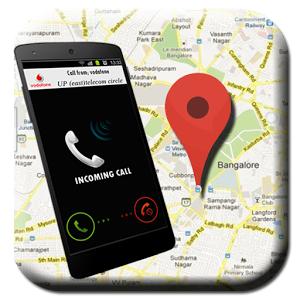Dangers of Social Media
The dangers of social media are real. We are addicted to our phones and social networking sites like Facebook, Instagram, Twitter, and Snapchat. We use our phones at work, at home, in restaurants, and anywhere else we can get a signal. Phone apps exist for everything from shopping to caller ID apps for iPhone to your local dentist’s office. Smartphones can be useful, but they can also cause emotional and physical problems if they are used too often.
Emotional Issues
Smartphone addiction is often tied to impulse-control issues. The inability to control impulses can lead to ignored relationships and responsibilities to spend time on social media, playing games or having online relationships.
Smartphone addiction can encompass a variety of impulse-control problems, including:
Information Overload
Compulsive Internet surfing, trolling newsfeeds, using social media, watching videos or playing games can lead to isolation and reduced productivity at school or work. Time spent on these activities takes time away from your day to day or “real” life. It can also lead to information overload which can lead to lack of focus and concentration.
Real Relationships
Addiction to texting, instant messaging, social networking and online dating apps can cause a disparity in a person’s relationships. Online relationships become more important than those in real life. The Internet is a convenient way to stay in touch with family and friends. Most romantic relationships start in the virtual world. However, virtual relationships are not a suitable substitute for face-to-face interaction. Additionally, developing online relationships, particularly romantic ones, can interfere with our daily lives and jeopardize existing friendships and committed relationships.
Lasting Effects
The cause and effect of heavy cell phone use is a cyclical issue. Many become addicted to their cell phones because of underlying issues. However, the addiction feeds those issues, often exacerbating the problem. Some examples:
Loneliness and Depression
A lonely or depressed person may use the Internet to reach out and get relief from his problems, Online friends, support groups or therapy sessions can help, although devoting a great deal of time only increases the issues by cutting the person off from real life. A 2014 study showed a correlation between heavy social media usage and anxiety and depression.
Increased Stress
Being tied to your smartphone because of work increases stress. It blurs the line between your professional and personal life. Users are always expected to be available with no chance to unwind. Constant contact also causes stress in personal relationships and builds resentment against co-workers and employers.
Lack of Focus
The constant presence of smartphones and their notifications are a distraction. The persistent noise and required attention keep you from important things at home and at work.
Loss of Sleep
Overuse of a smartphone can cause a disruption or loss of sleep. It affects your memory and cognitive abilities. Some reports show that even having a smartphone in the room can disrupt sleep due to radiation.
Physical Issues
Neck Pain
Physical problems are another danger involved with social media. Smartphones require a person to look down while in use, so it’s common for people to get stiff necks or necks and backs that are thrown out of alignment. Chiropractors refer to the problem as “Milennial neck.” Prolonged use can cause permanent damage such as a reversed curve of the spine.
Lack of Exercise
Lack of exercise can cause a plethora of problems from weight gain to diabetes to muscle atrophy. While there are many apps that promote exercise, social networking sites encourage us to sit and scroll through hours of news feeds, videos, memes, and messages from online friends and family. Constant use also encourages us to snack rather than eat proper meals, leading to poor nutritional habits.
Financial Distress
Money Problems
Relationships aren’t the only things that can be put into jeopardy through an addiction to the Internet. Compulsions such as online shopping, gaming, bidding on auction sites and trading currency are a few things that can lead to financial stress. Shopping addicts can’t pass up a good deal or gamblers want to try to win just one more time.
Monitor Your Credit Score
Online shopping can lead to identity theft. Scammers routinely steal personal data, bank and credit card information to sell or use for their own benefit. Check your credit scores routinely to gauge unusual activity. Changes in your credit score can determine if you have been a victim of hackers.
Online Sites
Social media sites are rife with people on both sides of the catfishing scheme. While dating sites are most often the trolling place for scammers, other social media sites like Facebook, Snapchat, and Instagram are also possible sites for scams. Here’s an example from a dating site.
Joan signs up for a dating website. She posts her picture and information about herself. Soon, Joan is excited when she receives several messages. She looks at pictures and replies. Then she notices some strange behavior manner. Here are some of Joan’s red flags:
No Profile Picture
Several of the men contacting Joan don’t have a profile picture posted. A small percentage may have a legitimate reason for not having a picture, such as a high-profile job, however it’s likely that the poster is married or a fraud.
Movie Star Looks
If a photo looks overdone or professional, chances are it’s fake. Use a reverse image search in Google to uncover the user’s true identity. Some of the most popular services include Google Reverse Image Search or TinEye. Upload the person’s picture and search. Try more than one service to make sure that the picture isn’t located elsewhere on the internet. You may find it linked to other dating websites as well.
Bad English
Scammers are typically non-native English speakers. It becomes obvious quickly when chatting via message. They often use incorrect words, the wrong tense, or confuse things such as there, they’re and their. Also, non-English speakers tend to not use contractions. The lack of good grammar is a glaring sign that someone is not who he claims to be.
The Same Old Story
Scammers aren’t very creative. Sob stories generally include the person losing his entire family, being stranded overseas, or having lost his wife to cancer and left with a child to raise. If a story sounds familiar, enter some of the text into a Google search. You might be surprised at what appears on your screen. The same can be said for overly produced poetry he uses to profess his love.
Love at First Sight
Scammers aren’t patient. They want to gain your trust and get your money as soon as possible. For that reason, they tend to go to any length to win your trust and affection. Poetry, gifts, words of affirmation and love are just some of the ways in which a scammer will try to win you over. The more you accept those gestures, the harder the scammer tries.
The Ask
Once a scammer feels he has your trust, he will ask for something. It usually starts as something small, a small token of your affection. He may even send the first gift to get the ball rolling. Perhaps it’s simply a phone call or video chat. Rest assured that it’s only the beginning of something much bigger.
Children On Social Media
Children spend as much time online as adults, perhaps more. Sexual predators, criminals and hackers may take advantage of a child. Children may be lured into unsafe situations or be asked to divulge sensitive personal information.
Safety Tips
Parents must take precautions to protect children online. There are several ways to do so:
- Use Safe Sites
- Engage safety features on websites.
- Set privacy controls on social media accounts. First, make sure that the children are old enough and mature enough to use social media. Discuss what is appropriate and limit who can see their posts.
- Use separate accounts for adults and kids.
- Set up separate accounts for your kids on your computers
- Use kid-safe search engines and browsers.
- Limit the time your child spends online.
- Use only safe chat rooms
- Teach your children not to talk to strangers. While great friendships can be made online, there is a great danger that children are being approached by predators. Teach kids to maintain a safe distance. If the stranger wants your child to call or text, iPhone app to see who a phone number belongs to and note it just in case.
- Teach your children about “sexting.” The Justice Department has stated that the biggest threat to children is something called “sextortion.” People send graphic messages or pictures which can cause lasting self-esteem issues and psychological damage.
- Avoid file sharing. Aside from being illegal, sharing files, e.g., music, videos, etc. can be a doorway to getting a virus on your phone or computer.
- Discuss cyberbullying. The National Academies of Sciences, Engineering, and Medicine have reported that cyberbullying affects up to 15% percent of children. The percentage is higher for kids who are minorities, disabled, overweight, or LGBTQ.
Conclusion
Smartphones and other electronic devices are here to stay. The changes in our behavior, both physical and emotional, affect us on a regular basis. One solution to suffering ill effects of overuse is to limit daily use of your phone. If you suspect you have a cell phone addiction, there are programs specially designed to help manage use and its effects. A professional therapist may also help to deal with cell phone addiction and how to get into recovery.

